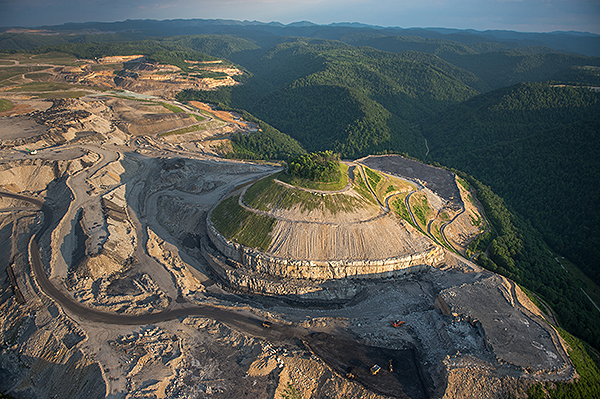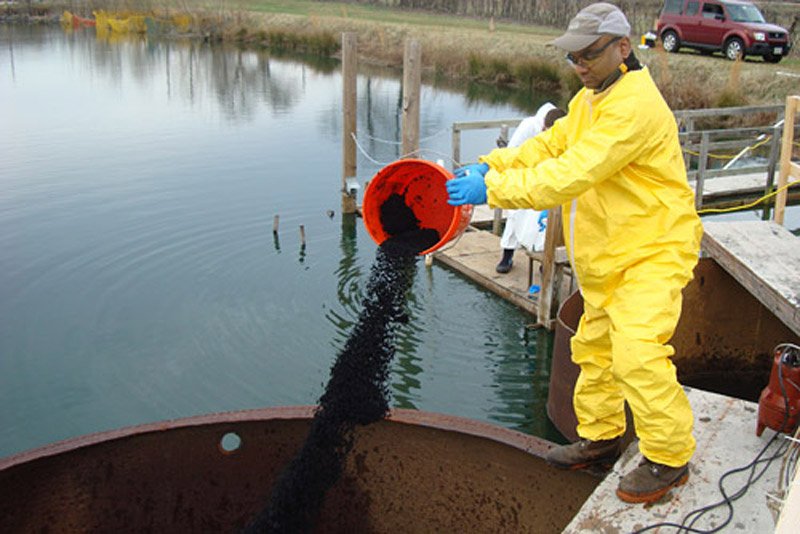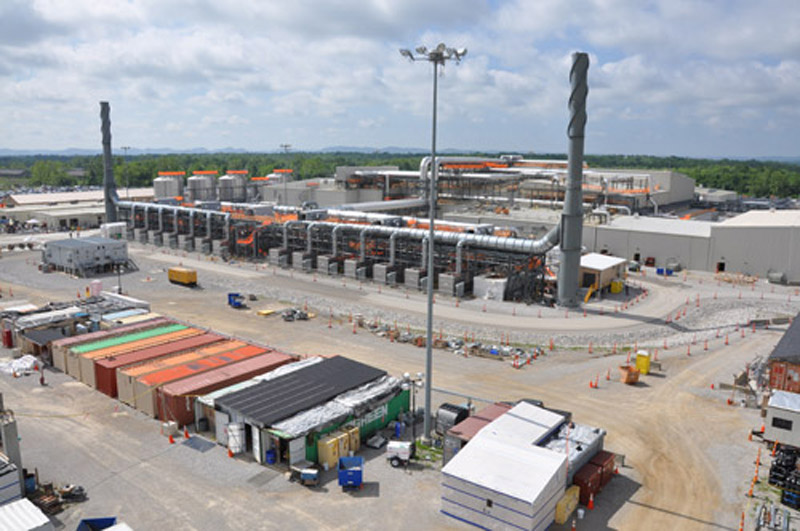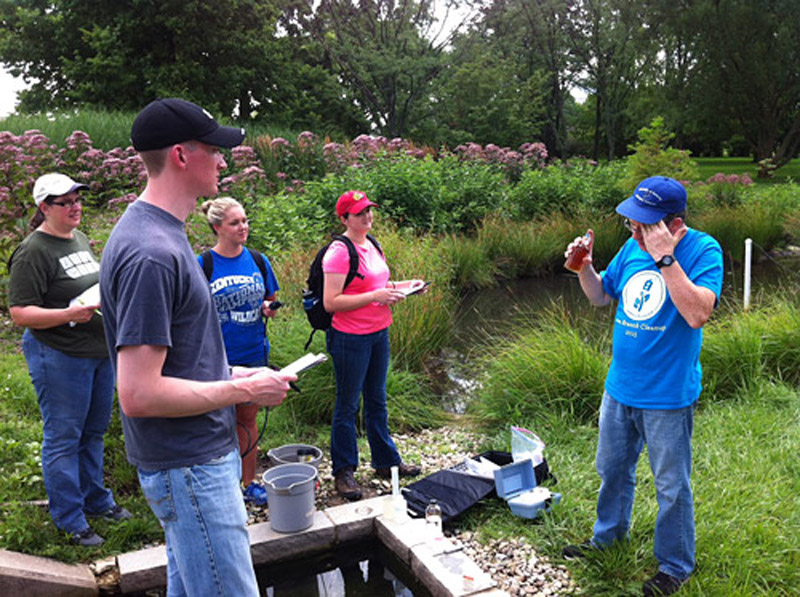Cleaning Up Coal Ash
For well over a century, power plants across the country have burned coal to generate electricity. And for just as long, leftover coal ash has been dumped in open, unlined pits near the power plant, usually located on a river or lake. Every year, U.S. power plants produce 130 million tons of coal ash, which is the second largest waste stream in the country after municipal garbage.
Coal ash concentrates the toxic heavy metals found in coal, including arsenic, mercury, lead and selenium. Stored in unlined, wet impoundments, coal ash has been leaking these toxics into our groundwater and surface waters for years. Sometimes these impoundments collapse — with disastrous results.
Yet government regulations for coal ash management are either non-existent or sparse, and there is little enforcement of the regulations that do exist. In North Carolina, this lack of oversight — and the complicity between state regulators, elected officials and Duke Energy — came to a boiling point in February 2014 when one of Duke’s coal ash impoundments spilled 39 million tons of ash into the Dan River.
Citizens living near North Carolina’s 33 coal ash impoundments — all of which have leaked — have fought for transparency from Duke and the state, and for cleanup of the pollution that threatens their property value, health and family. Their actions forced this issue into the headlines of news networks and to the forefront of environmental justice conversations in the United States.
Appalachian Voices stood with these communities as we worked for years to compel Duke Energy and the N.C. Department of Environmental Quality to excavate coal ash from all the North Carolina sites and dispose of it either in lined, dry landfills, away from waterways, or by recycling it for concrete or other uses, provided it’s done in a manner that protects public health and the environment.
On Jan. 2, 2020, North Carolina announced a historic settlement with one of the state’s most powerful corporations and polluters, Duke Energy. The settlement requires Duke to move nearly 80 million tons of toxic coal ash at six of its power plants to properly lined landfills onsite or recycle it.

Learn information about specific coal ash impoundments in the South, including health threats and safety ratings:
Additional Resources
Fact sheets, videos, links to academic research, and more
Sign Up to Act
Help us protect the health of our communities and waterways.
Latest News
U.S. coal giant Alpha Natural Resources files for bankruptcy
Alpha Natural Resources, one of the largest coal mining companies in the United States and a big player in the Appalachian coal market, filed for Chapter 11 bankruptcy on Monday of this week, blaming “an unprecedented period of distress with increased competition from natural gas, an oversupply in the global coal market, historically low prices due to weaker international and domestic economies, and increasing government regulation that has pushed electric utilities to transition away from coal-fired power plants.
Alabama Coal: Strip Mine Proposal Halted on Mulberry Fork
By Kimber Ray Even to those familiar with…
Virginia Town Tests Natural Pollution Treatment Techniques
Using natural methods to remove toxic material from soil and water is an ancient practice that has not been well-studied. A series of projects in Altavista, Va., could be the first to show that bioremediation can be a successful, cost-effective way to treat PCB contamination.
Disposing of a Chemical Past
Rockets and projectiles containing more than 500 tons of nerve gas and other chemical weapons from World War II and the Vietnam War era are stored near Richmond, Ky. If all goes according to plan, those weapons will be destroyed over the next few years in a multi-billion facility in final stages of construction.
Communities Find Solutions to Stormwater
To help reduce polluted stormwater from overwhelming nearby waterways, Appalachian cities, towns and universities are deploying green infrastructure and other creative methods.
In the Neighborhood: Living with Coal Ash
By Sandra Diaz Tracey Edwards, a lifelong resident…









